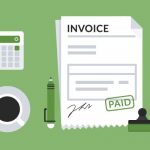7 Tips To Collect Late Payment From Your Customer
It is not unheard of that in business, some customers fail to pay up as at when due even after you may have invoiced them properly and timeously in other enable them be aware to pay on time. When such situations arise, it is advisable to approach it with the highest level of diplomacy and professionalism. Here are tips on how you can handle the situation.
Expect it: It is always good to be mentally prepared for the possibility that such a situation may arise, the consciousness of this possibility, first of all, puts you in a state of mind to accost such a situation. If you are not exactly the type of person to handle such a matter with diplomacy, do well to hire someone who can handle it properly.
Follow up: where you have expected the possibility of a default in payment, it will be rudimental to adopt the option of a serious follow up after you send the invoice to the client. Such a follow up is to ensure the client received and saw the invoice you had sent so not to give him the chance of using the excuse of having not received it. Such follow up can be done via phone calls, follow up emails or even a visit; this makes the client or customer aware of the seriousness of your timely payment.
Reminder: a reminder can also help to make the customer aware of the impending payment. Such reminder for payments can be made through calls or messages which is also a form of follow up to sending the invoice. You can also do this some weeks to due date and days to it as well.
Make inquiries: at the default of payment by the client or customer, it is not advisable to take a drastic action immediately, you can actually, first of all, make inquiries to know why the default is happening, giving the fact that it could be a mere delay or a misunderstanding of some sort.
Demand payment: when it is certified that there is no logical reason for the delay and default in payment, you can resort to demanding the payment of the money owed. You can do so by sending a demand letter or message and confirm the receipt of the message stating the duration within which such payment should be made.
Seek legal advice: where the default starts to seem too much such that it may be a deliberate act by the customer or client to hold your payment, you can now decide to seek legal advice to know what next action to take. Some people immediately resort to court actions but then there could be preliminary legal actions that can be taken besides court actions to recover the funds, such options can be advised by a legal practitioner. Such options may include alternative dispute resolution (ADR).
Take legal action: On the advice of a legal practitioner, you may now take legal actions to recover your funds and it may be to sue such a defaulting customer or client.
Recovery of money can be quite difficult, but the application of drastic moves could never exactly be the right action, the above can help you recover the said outstanding money in good time and maintain your professionalism and not dissuade other customers and client or prospects from your brand.





